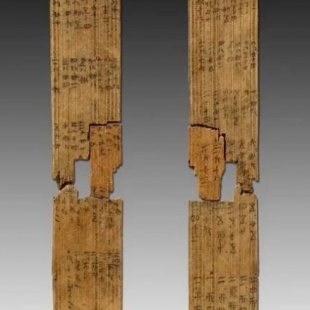Bamboo slips engraved with 'Chengdu' found

A batch of bamboo and wooden slips from the Qin Dynasty (221-206 BC) engraved with the Chinese word "Chengdu" was released recently by the cultural relics and archaeology research institute of Chengdu, the capital of Southwest China's Sichuan province.
From April to December last year, the institute conducted an excavation at the site of Zikujie Street in Chengdu and cleared out 53 pieces of bamboo and wooden artifacts with complete and clear writing, according to Tang Bin, the person in charge of the excavation site.
Another 212 pieces of suspected bamboo and wooden slips were found, Tang says, adding that the word "Chengdu" is visible on one of the bamboo slips.
"Based on the lettering style, it is speculated that these slips date from the late Warring States Period (475-221 BC) to the Qin Dynasty," Tang says.
A large number of cast copper weapons and a batch of pottery were also unearthed at the site.
"The bamboo and wooden slips discovered this time are the earliest of its kind found in Chengdu, which contains information such as administrative management systems, officials and historical geography," says Zuo Zhiqiang, associate researcher of the cultural relics and archaeology research institute of Chengdu.
"They are of great historical significance and also have high calligraphy art and cultural value," Zuo adds.





































